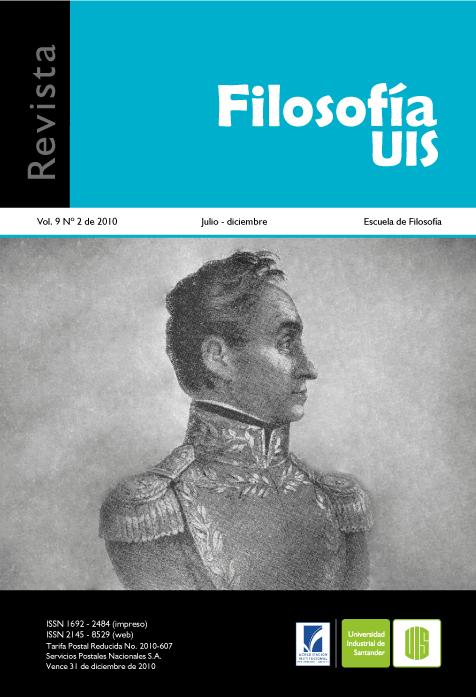From literary trope to hermeneutic mechanism. Metaphor: transformation and change of linguistic stage
Published 2010-12-14
Keywords
- metaphor,
- ubiquity,
- redescription,
- literature,
- hermeneutic
- self ...More
How to Cite
Copyright (c) 2010 Juan Edilberto Rendón Ángel

This work is licensed under a Creative Commons Attribution 4.0 International License.
Abstract
This paper proposes metaphors as the re-descriptive renewal mechanism of language. It starts with a critique to its use as a mere literary figure, then, it develops its semantic influence that turns it into the strength that allows the hermeneutic openness between the works of literary art and their readers, due to a special relationship that links them. Such a linking allows the modification of the text tissue that the readers have and gives life to the works when widening their hermeneutic horizon. From this point of veiw, metaphors give the possibility of achieving an original style for identity as it proposes an original reading of the work. Metaphors change the perspective into language, from the strongest certainties of the sceintific region to the transient poetic moods.
Downloads
References
- Proust, Marcel (1998a). En busca del tiempo perdido: 3. El mundo de Guermantes. Traducción de Pedro Salinas y José María Quiroga Plà, Madrid: Alianza.
- Proust, Marcel (1998c). En busca del tiempo perdido: 5. La prisionera. Traducción de Consuelo Berges, Madrid: Alianza.
- Ricoeur, Paul (2001). La metáfora viva. Traducción de Agustín Neira, Madrid: Editorial Trotta.
- Rorty, Richard (1989). Contingency, Irony, and Solidarity, Cambridge: Cambridge University Press.
- Rorty, Richard (1991). Contingencia, ironía y solidaridad. Traducción de Alfredo Eduardo Sinnot, Barcelona: Paidós.
- Rorty, Richard (1993). Escritos Filosóficos 2. Traducción de Jorge Vigil Rubio, Barcelona: Paidós.
- Suárez Molano, José Olimpo (2006). Crítica a la razón en la filosofía del siglo XX, Medellín: Editorial Universidad de Antioquia.
- Suárez Molano, José Olimpo (2005). Richard Rorty: el neopragmatismo norteamericano, Medellín: Editorial Universidad de Antioquia.
- Vallejo, Fernando (1983). Logoi. Una gramática del lenguaje literario, México: Fondo de Cultura Económica.
